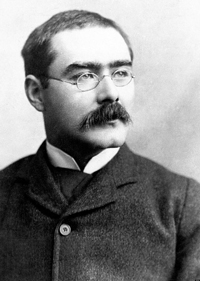
Source: A Portrait of Rudyard Kipling, John Palmer, Wikimedia Commons.
“Hump day” refers to the idea that a week, especially a week when school is in session, is like a hill. On Monday and Tuesday, you climb up. By the end of Wednesday, you have reached the top of the hump, and you can coast through Thursday and Friday to the weekend. Unknown words are humps or hurdles that you need to climb over so you can coast through text with comprehension. Writers want to communicate clearly, so when they use unfamiliar words or words with multiple meanings, they add context clues. In consideration, they place synonyms, antonyms, definitions, or examples in the context to help you figure out troublesome words. In this section, you will use the context to figure out the meaning of some even more challenging words, and if you’ll excuse the pun, Mr. Kipling, you will also discover why camels are never called Humphrey.
And the camel said “Humph,” again; but no sooner had he said it than he saw his back, that he was so proud of, puffing up into a great big swollen protruding (1) humph.
“Do you see that?” said the djinni. “That’s your very own humph that you’ve brought upon your very own self by your inactive, dormant (2) behavior. Today is Thursday, and you’ve been idle since Monday, when the work began. Now you are going to work.”
“How can I,” said the camel, “with this humph on my back?”
“That humph was placed there intentionally (3),” said the djinni, “All because you missed those three days. Now you will be able to endure (4), or last, for three days without eating, because you can live on your humph. Leave the desert and go to the three, and behave.”
And the camel, humph and all, went away to join the three. From that day to this the camel always wears a humph (we call it “hump” now, not to hurt his feelings); but he has not yet learned how to behave.
Guessing words’ meanings based on their context takes practice, but you, unlike the camel, are willing to work. In this final exercise, determine the meaning of the word from the context, and then select another context where the word is used correctly.

Now that you’ve learned to work smarter, not harder, you will find that you will be able to get over all the humps when you tackle new vocabulary.